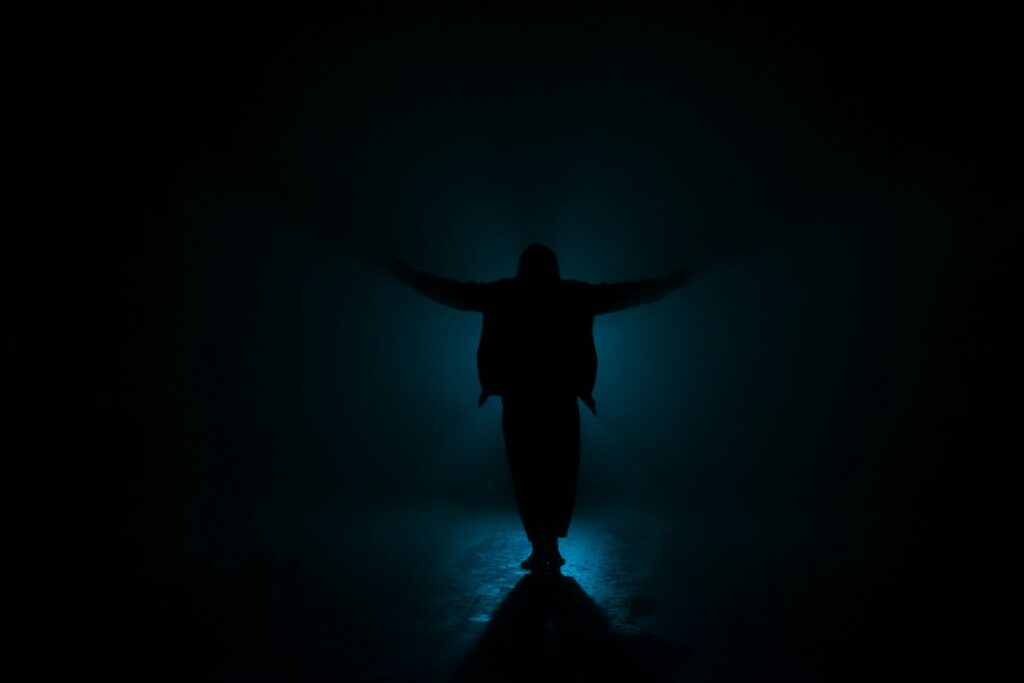
I had just turned 17 when my older sister and I went to see a movie that had taken the public by storm. It was called “The Exorcist,” and it was based on a bestselling book by the same name. Since at least half of the world’s current population wasn’t born by 1974, you might not know it well, so I’ve quoted some lines from the movie to help you follow along.
In the story, the devil takes over the mind and body of a young girl and two priests attempt to exorcise it. Once possessed, the innocent girl’s face contorts into a bloated mask, emitting an inhuman voice that growls with rage and loathing. Defying the priests’ invocations, the demon spews streams of bile and stench and spins its fattened head in a bone-cracking twist. It conjures a swirling wind that carries the shriek of snarling animals and the drone of locusts. The force shatters ceilings, windows and walls. Through it all, the grotesque beast sits in the girl’s bed, perched like a prince amid the pain and destruction he has wrought.
It was the scariest movie ever made.
My sister and I were so terrified after seeing it that we slept together that night. She remembers taking a Bible to bed. For a long time after, I could not sleep with my closet doors open, because the demon was inside. It wasn’t my imagination. I could see him.
These days I’m seeing him again.
“The demon is a liar. He will lie to confuse us. But he will also mix lies with the truth to attack us. The attack is psychological and powerful. So don’t listen to him. Remember that—do not listen.”
Unfortunately, one priest died of a cardiac arrest and the other one listened and lost faith, so although the girl was released from her possession, the demon returned in no fewer than six sequels. I didn’t go to see any of those. I thought I’d seen and heard enough horror to last a lifetime.
When I started practicing Zen, I was pretty convinced that I’d left all that devil business behind me. But we can’t leave our demons. They are inside us, like the shadows inside our closet. The story of Buddha’s enlightenment is nothing other than an encounter with the voices in his head spewing ego’s insatiable desires: greed, vanity, and gluttony, anger and hate, lust for riches and power, the fear and colossal stupidity of our delusional self. We have to conquer our own demons, over and over, or they possess us. We cannot, absolutely cannot, believe what they say.
“The victim’s belief in possession helped cause it. And just in the same way, this belief in the power of exorcism can make it disappear.”
A demon possesses, manipulates, and controls those who believe in him. Perhaps they believe he is a savior, a strong man, and a victor. Perhaps they believe that he is god’s messenger or the one true king. Perhaps they believe that they will be among the great and glorified, enriched and sanctified, even as he corrupts their minds, consumes their bodies, and befouls their beds. But a demon has no power to create anything other than damnation. What then is the point?
I think the point is to make us despair. To see ourselves as . . . animal and ugly. To make us reject the possibility that God could love us.
And that we could love one another.
I don’t know the ending to this story. I only know it’s up to us. Time is short and the road is long, but please don’t lose faith.
###
If your faith is wavering, here is a gift link to Ezra Klein’s recent essay in the New York Times: “Don’t Believe Him”
Photo by Zanyar Ibrahim on Unsplash



Thank you for your words, Maezen. And for the gifted article. Encouraging.
Comment by Gretchen Staebler — February 4, 2025 @ 2:30 pm
My Dear Maezen,
You and I met years ago when I was living in CA and came to L.A. to sit in a weekend zazen group.
I want to know how deeply you still inspire and guide me through your writings and this one particular entry including “Don’t Believe Him” was just what I needed in this particular terrible time. I forwarded it to several friends.
Though we’ve not seen each other in many years, you remain my teacher.
Thank you for all you do . . . and all you are.
With love, Elizabeth Gore
Comment by E. J. Gore — February 5, 2025 @ 9:37 am
Of course I remember you, E.J. We walk the Way together and forever.
Comment by Karen Maezen Miller — February 5, 2025 @ 10:06 am
…and so it is us and them…a powerful division…I’ve heard them say they want to figure out how to reprogram us…I’ll keep my closet closed…
Comment by Larry Misiak — February 5, 2025 @ 11:01 am